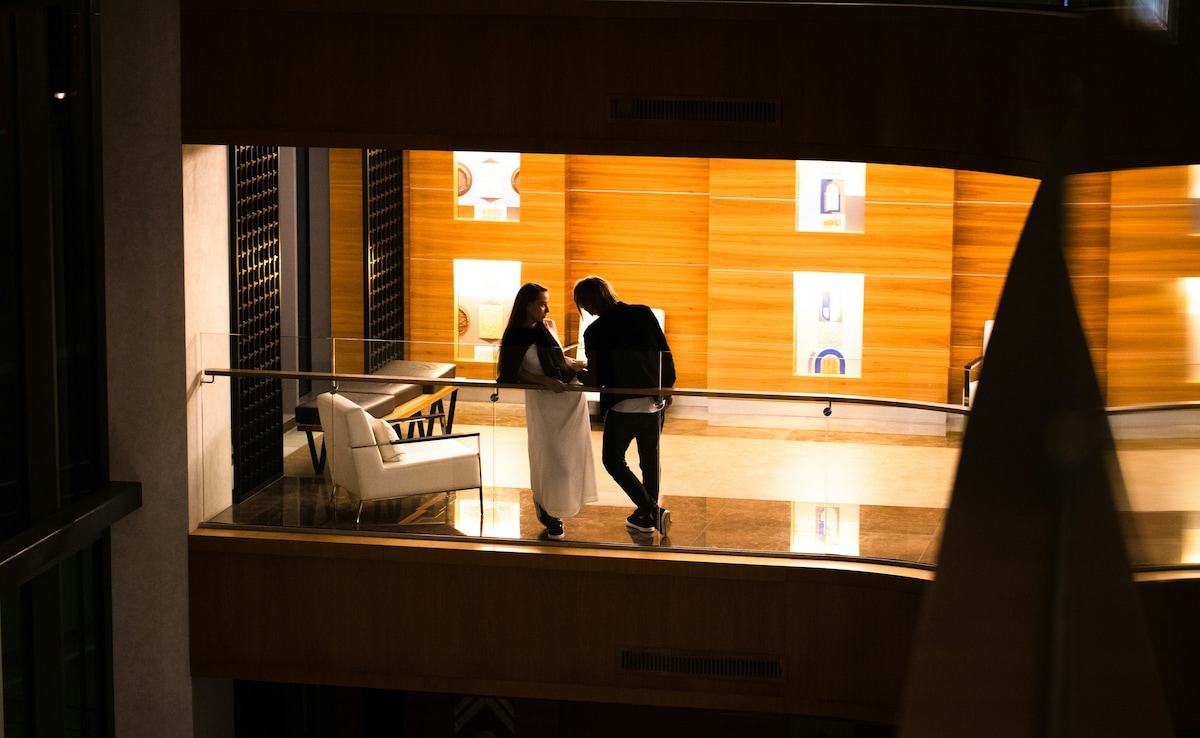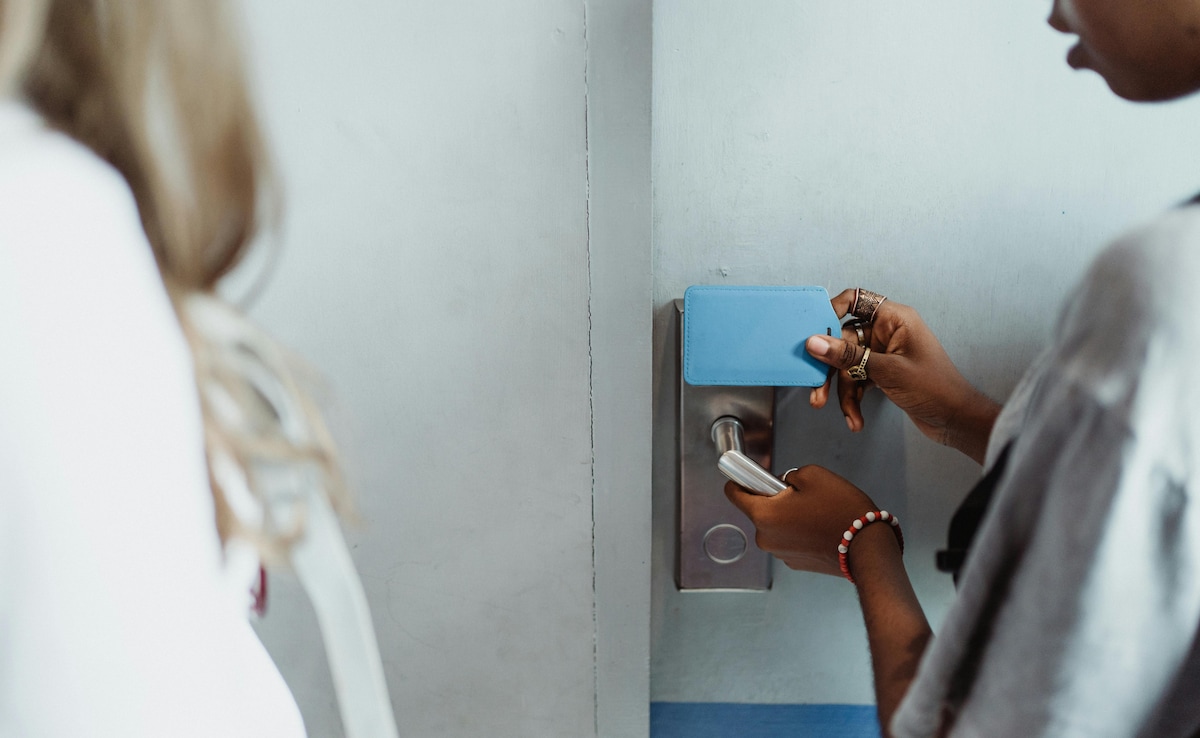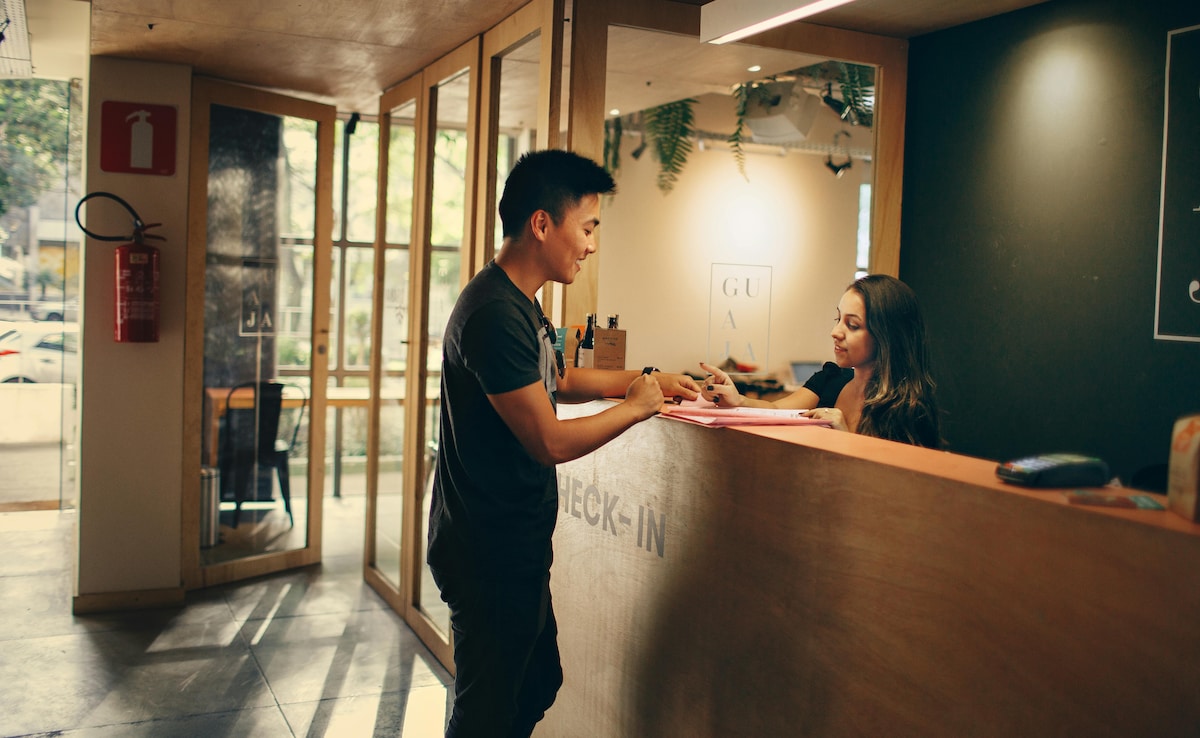
You have booked a perfectly decent hotel. The payment is done, the itinerary is planned, and your cab is on its way. Then comes that one line that makes your eyebrows twitch: "We only allow married couples with valid ID. No local IDs accepted." Wait, what?! Whether you are travelling solo, booking a staycation in your own city, or planning a trip with your partner, hotel rules in India can sometimes feel like you have entered a moral maze. "Couples Only" is one of those phrases that sounds helpful but often translates into confusing restrictions, outdated assumptions, and uncomfortable check-in encounters.
Also Read: Planning A Trip To Amer Fort? These 5 Facts Will Spark Your Curiosity
So, What Does "Couples Only" Even Mean?

At its surface, it implies that a hotel prefers guests who are in a romantic relationship, typically married, and discourages solo travellers or groups that do not meet this vague definition of 'appropriate'. In practice, it often becomes a polite cover for:
No unmarried couples
No "stags" (solo men or groups of men)
No guests with local IDs
No one who looks like they might do something 'questionable' (whatever that means)
Apparently, your Aadhaar card is not enough. They want your family tree and wedding album, too.
The Fear Of 'Locals' And Other Strange Assumptions

One of the most baffling rules? No local ID allowed. If you live in the same city as the hotel, many properties will flat-out deny your booking. The reason? A cultural assumption that people only book hotels in their own city for, well, less-than-family-friendly reasons.
But locals also book hotels for a hundred legitimate reasons - early morning flights, renovations at home, bad traffic, or simply wanting a break.
This local ID bias often unfairly targets solo women travellers, young couples, and working professionals just trying to get through the day.
The Marriage Certificate Obsession

Technically, there is no law in India that says unmarried couples cannot stay together in a hotel. But some hotel owners or societies continue to impose this condition as part of their "rules," usually citing vague reasons like "neighbourhood pressure" or "reputation."
Advocate Rajarshi Mukherjee explains,"The Indian Constitution guarantees the right to privacy under Article 21. Courts have repeatedly upheld this right, especially in cases involving moral policing. In fact, the Bombay High Court once ruled that police cannot act as moral custodians without legal backing."
So, if your ID is valid and your intent is legal, you cannot - and should not - be denied a stay because of your relationship status.
What About Booking Apps And Relationship Mode?

Many booking apps tried to address this problem head-on by launching "relationship mode" properties - hotels verified to accept unmarried couples without judgement. Others have quietly started listing "local ID allowed" in filters to help travellers book more confidently. According to OYO Rooms data, "There is an increased demand for couple-friendly hotels in India. Online demand for hotels that allow couples has grown rapidly in past few years."
This rise reflects not just shifting social norms, but also how more young Indians are travelling for workcations, staycations, or weekend breaks - and do not want to feel judged for it. Despite these improvements, many guests still report being denied check-in at the last minute or being quizzed unnecessarily at reception desks. Even more frustrating? Some hotels accept online bookings and then call to cancel if you mention your partner is not your spouse. The tech may have evolved. The attitude? Still catching up.
Young Travellers Just Want Peace - Not Permission
For Gen Z and millennial travellers, the idea of asking for permission to stay in a hotel, or proving you are married is baffling. A hotel, after all, is a paid service, not a moral checkpoint. Yet, the experience of being judged or denied entry still persists.
Solo women travellers, in particular, have reported hotels cancelling bookings if they sense a woman is travelling alone "without a male companion." And let us not even get started on assumptions around queer couples.

Photo: Pexels
Where It Is Getting Better
Thankfully, the tide is shifting, especially in metros and among newer hospitality chains. Progressive hotels and hostels now openly advertise their inclusive policies. Boutique stays and Airbnb-style hosts often offer far more warmth and flexibility than large budget chains tied to residential rules.
What helps most? Transparency. Travellers now often call in advance, confirm hotel policies, and read reviews carefully before they book. A growing digital community also flags problem properties or celebrates inclusive ones, slowly but surely changing the landscape.
Also Read: 6 Hill Stations In India That Transform Into Foggy Wonders By 4 pm
The Bottom Line
If you have ever had to prove your relationship status at a reception desk, you are not alone. But the law is on your side. And thankfully, so is common sense - at least in some parts of the country. It is 2025. "Couples Only" should be a preference, not a penalty.
Track Latest News Live on NDTV.com and get news updates from India and around the world

